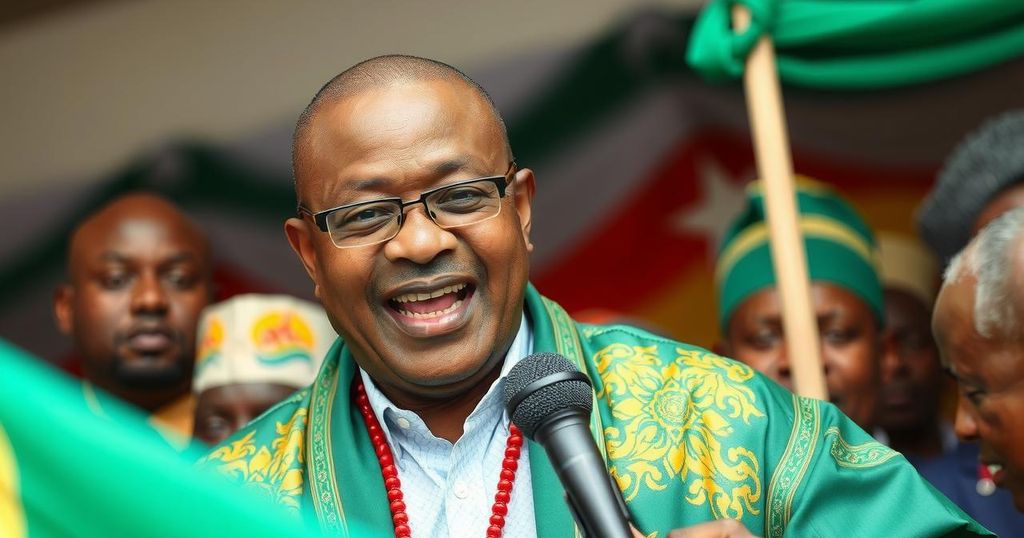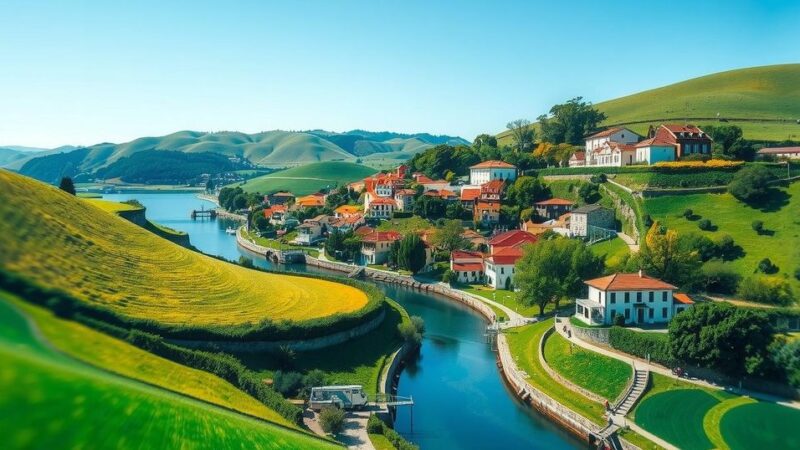Former Ghanaian President John Dramani Mahama has secured a comeback election victory, attributed to voter dissatisfaction with the ruling NPP’s economic management. Vice President Mahamudu Bawumia conceded defeat, acknowledging the high cost of living as a critical issue. This election marked the end of an eight-year NPP tenure under President Nana Akufo-Addo, amid significant economic challenges, including inflation and a debt crisis that led to an IMF bailout. Mahama gained 56.3% of the votes, signaling a potential shift towards addressing pressing economic concerns.
Ghana has witnessed the remarkable return of former President John Dramani Mahama, who has secured a victory in the recent presidential election. This election was characterized by voter sentiment that leaned towards expressing dissatisfaction with the ruling New Patriotic Party (NPP) due to its perceived inability to manage the ongoing economic crisis effectively. The NPP’s candidate, Vice President Mahamudu Bawumia, conceded defeat promptly following the election results, acknowledging the prevalent discontent regarding the rising cost of living.
The recent election concluded an eight-year tenure for the NPP under President Nana Akufo-Addo, during which Ghana experienced significant economic challenges, including soaring inflation and a debt default. This marked Mahama’s third attempt to reclaim the presidency after losses in the 2016 and 2020 elections. Following the concessions, Bawumia expressed humility, stating, “The people of Ghana have spoken, the people have voted for change…” indicating respect for the electoral decision.
Celebrations erupted among Mahama’s supporters as they gathered in the capital, Accra, to rejoice in their candidate’s success. Although Mahama has remained silent in public discourse since Bawumia’s concession, he did confirm the exchange of congratulations on his social media account. The elections were primarily influenced by Ghana’s economic hardships, particularly following a $3 billion International Monetary Fund (IMF) bailout due to the country’s fiscal struggles.
Reports indicated that Mahama garnered 56.3% of the votes, surpassing Bawumia’s 41.3%. Political party representatives monitored the polling stations to ensure accurate tallying of votes, with finalized official results pending from the electoral commission. The historical context of Ghana’s political landscape reveals a pattern of alternating power between the NPP and the National Democratic Congress (NDC), providing a backdrop to the current electoral outcome. Despite attempts to extend the NPP’s tenure under the slogan “Break the 8,” Bawumia faced significant challenges stemming from criticisms of the incumbent administration’s economic performance.
While inflation rates exhibited some decline, the overall economic situation remained a pivotal concern for the electorate, which ultimately facilitated Mahama’s return to power. Nonetheless, Mahama must navigate the historical criticisms related to his prior administration’s fiscal management, which also faced significant backlash due to power shortages. The electoral results signal a critical shift in Ghana’s political landscape as the electorate seeks new leadership to address the pressing economic realities.
The recent election saw John Dramani Mahama of the National Democratic Congress (NDC) reclaim the presidency, marking a significant political shift in Ghana. Over the previous eight years, the ruling NPP, led by President Nana Akufo-Addo, faced substantial criticism due to economic turmoil characterized by widespread inflation and a debt crisis that prompted an IMF bailout. The historical context illustrates alternating party power dynamics since the reintroduction of multiparty politics in 1992, with Mahama seeking a comeback after previous electoral defeats. Economic stability remains a vital voter concern that directly influenced the election’s outcome, with noticeable public frustration over living costs and fiscal policies transforming the political landscape.
In conclusion, the election of John Dramani Mahama signals a decisive moment for Ghana as voters have expressed a clear desire for change amid economic dissatisfaction. The swift concession by Vice President Mahamudu Bawumia highlights the electoral implications of economic mismanagement under the NPP’s leadership. As Mahama prepares to resume office, he faces the dual challenge of addressing the current economic difficulties while overcoming past criticisms from his previous term. This political transition reflects the ongoing public appetite for effective governance in addressing urgent economic issues.
Original Source: www.theguardian.com







